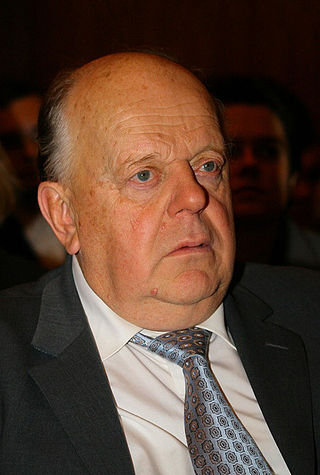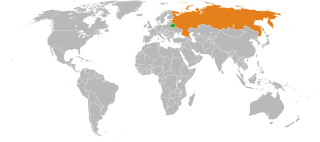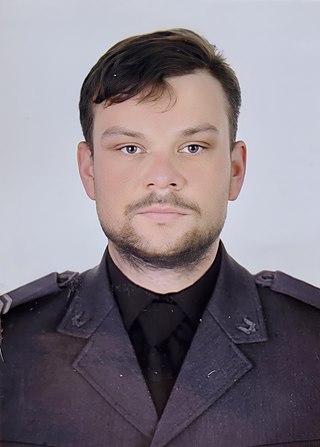Contents
- Incumbents
- Events
- January
- February
- March
- May
- June
- July
- August
- October
- December
- Deaths
- See also
- References
| |||||
| Decades: | |||||
|---|---|---|---|---|---|
| See also: | |||||
| |||||
| Decades: | |||||
|---|---|---|---|---|---|
| See also: | |||||
Ongoing – COVID-19 pandemic in Belarus

Alexander Grigoryevich Lukashenko is a Belarusian politician who has been the first and to date, only president of Belarus since the office's establishment in 1994, making him the current longest-serving head of state in Europe.

Stanislav Stanislavovich Shushkevich was a Belarusian politician and scientist. From 25 August 1991 to 26 January 1994, he was the first head of state of independent Belarus after it seceded from the Soviet Union, serving as Chairman of the Supreme Soviet. He supported social democratic reforms and played a key role in the creation of the Commonwealth of Independent States.

Belarusian rock has been developing since the early 1980s. The rock bands include Mroja, Ulis, Daj Darogu!, Kriwi, Lyapis Trubetskoy, Verasy, Open Space, Neuro Dubel, Accent, and Otrazhenie.
Colonel Yury Mikalevich Zakharanka was a Belarusian military officer, politician, and pro-democracy activist who served as Minister of Internal Affairs from 1994 to 1995. Following his departure from office, Zakharanka became a leading member of the Belarusian opposition, leading to his enforced disappearance and likely death in 1999.

Belarus and Russia share a land border and constitute the supranational Union State. Several treaties have been concluded between the two nations bilaterally. Russia is Belarus' largest and most important economic and political partner. Both are members of various international organizations, including the Commonwealth of Independent States, the Eurasian Economic Union, the Collective Security Treaty Organization, and the United Nations.

Belarus and Ukraine both are full members of the Baku Initiative and Central European Initiative. In 2020, during the Belarusian protests against president Lukashenko, the relationship between Ukraine and Belarus began to deteriorate, after the Ukrainian government criticized Belarusian president Alexander Lukashenko. In the waning days of 2021, the relationship between both countries rapidly deteriorated, culminating in a full-scale invasion on 24 February 2022. Belarus has allowed the stationing of Russian troops and equipment in its territory and its use as a springboard for offensives into northern Ukraine but has denied the presence of Belarusian troops in Ukraine. Even though part of the Russian invasion was launched from Belarus, Ukraine did not break off diplomatic relations with Belarus, but remain frozen. In July 2024, Lukashenko described Ukraine as an enemy.

Belarusian nationalism refers to the belief that Belarusians should constitute an independent nation. Belarusian nationalism began emerging in the mid-19th century, during the January Uprising against the Russian Empire. Belarus first declared independence in 1917 as the Belarusian Democratic Republic, but was subsequently invaded and annexed by the Russian Soviet Federative Socialist Republic in 1918, becoming part of the Soviet Union. Belarusian nationalists both collaborated with and fought against Nazi Germany during World War II, and protested for the independence of Belarus during the late 1980s and early 1990s.

Valery Vilyamovich Tsepkalo or Valery Vilyamavich Tsapkala is a Belarusian politician and entrepreneur. After graduating from the Moscow State Institute of International Relations with a doctoral degree in international law and serving in the embassy of the Soviet Union in Finland, Tsepkalo joined the staff of the Belarusian Ministry of Foreign Affairs. He later became an advisor on foreign political and economic relations to the Chairman of the Belarusian Parliament, Stanislav Shushkevich, and then a senior advisor to the Secretary General of the Commonwealth of Independent States.
Events in the year 2020 in Belarus.

The 2020–2021 Belarusian protests were a series of mass political demonstrations and protests against the Belarusian government and President Alexander Lukashenko. The largest anti-government protests in the history of Belarus, the demonstrations began in the lead-up to and during the 2020 presidential election, in which Lukashenko sought his sixth term in office. In response to the demonstrations, a number of relatively small pro-government rallies were held.

Sviatlana Hieorhiyeuna Tsikhanouskaya is a Belarusian political activist. After standing as a candidate in the 2020 presidential election against the president Alexander Lukashenko, she has led the political opposition to his authoritarian rule through an oppositional government operating from Lithuania and Poland.

Hanna Anatolyeuna Kanapatskaya or Anna Anatolyevna Kanopatskaya is a Belarusian politician, former MP, lawyer, entrepreneur and candidate in the 2020 Belarusian presidential election. She is also a former parliamentary deputy, represented the United Civic Party of Belarus from 1995 to 2019 and served as an MP from 2016 to 2019. She is known for her political campaign on calling Belarus to be freed from Russian interference.

Pavel Pavlovich Latushko is a Belarusian politician and diplomat. He was the Minister of Culture of the Republic of Belarus from 2009 to 2012.

Katsyaryna Andreeva is a Belarusian journalist. She worked for the television network Belsat TV. She broadcast the event from the Square of Changes in Minsk where Raman Bandarenka was beaten to death in 2020.
The 2020–2021 Belarusian protests were a series of political demonstrations and protests against the Belarusian government and President Alexander Lukashenko. The largest anti-government protests in the history of Belarus, the demonstrations began in the lead-up to and during the 2020 presidential election, in which Lukashenko sought his sixth term in office. In response to the demonstrations, a number of relatively small pro-government rallies were held.

Belarus, a close ally of Russia, has supported its eastern neighbour in the Russian invasion of Ukraine. Before the start of the offensive, Belarus allowed the Russian Armed Forces to perform weeks-long military drills on its territory; however, the Russian troops did not exit the country after they were supposed to finish. Belarus allowed Russia to stage part of the invasion from its territory, giving Russia the shortest possible land route to Ukraine's capital, Kyiv. However, these forces withdrew within two months, thus ceasing land-based military operations originating from Belarus and resulting in the recapture of the Ukrainian side of the border region by Ukraine. Despite this, the situation along the border remains tense, with Ukraine closing the border checkpoints leading into Belarus, bar special cases.

Aliaksiej Mikalajevič Skoblia, nom de guerre "Tur", was a Belarusian soldier who was deputy commander of the Kastuś Kalinoŭski Battalion under the Armed Forces of Ukraine. Skoblia died defending Kyiv from advancing Russian troops during the Battle of Kyiv in the 2022 Russian invasion of Ukraine. He was posthumously conferred the title of Hero of Ukraine by President of Ukraine Volodymyr Zelenskyy.
Events of the year 2023 in Belarus.

The Russian military's presence in Belarus has increased greatly in size from its original deployments since the dissolution of the Soviet Union. The Russian military has been accused of assisting in the crackdown on the 2020–2021 Belarusian protests by supplying weapons and equipment to the Belarusian government and planning to invade the country in case the protests succeeded, and played a significant role in the early stages of the Russian invasion of Ukraine. Russia currently maintains two military bases in Belarus, and is currently preparing to station tactical nuclear weapons in the country.
Events of the year 2024 in Belarus.
"The aim is to evaluate the readiness and ability of troops to react rapidly to a possible crisis," it continued, describing the maneuvers as a "surprise" exercise.